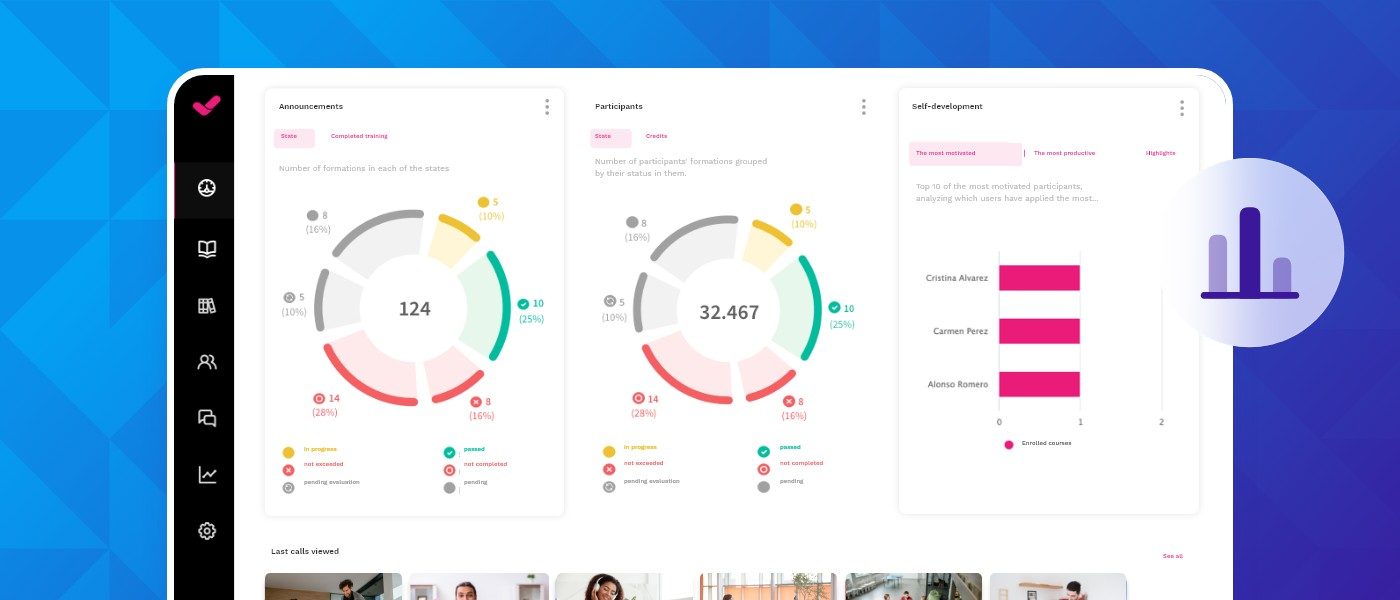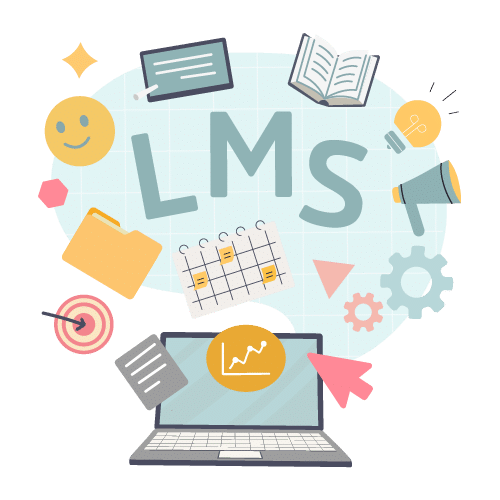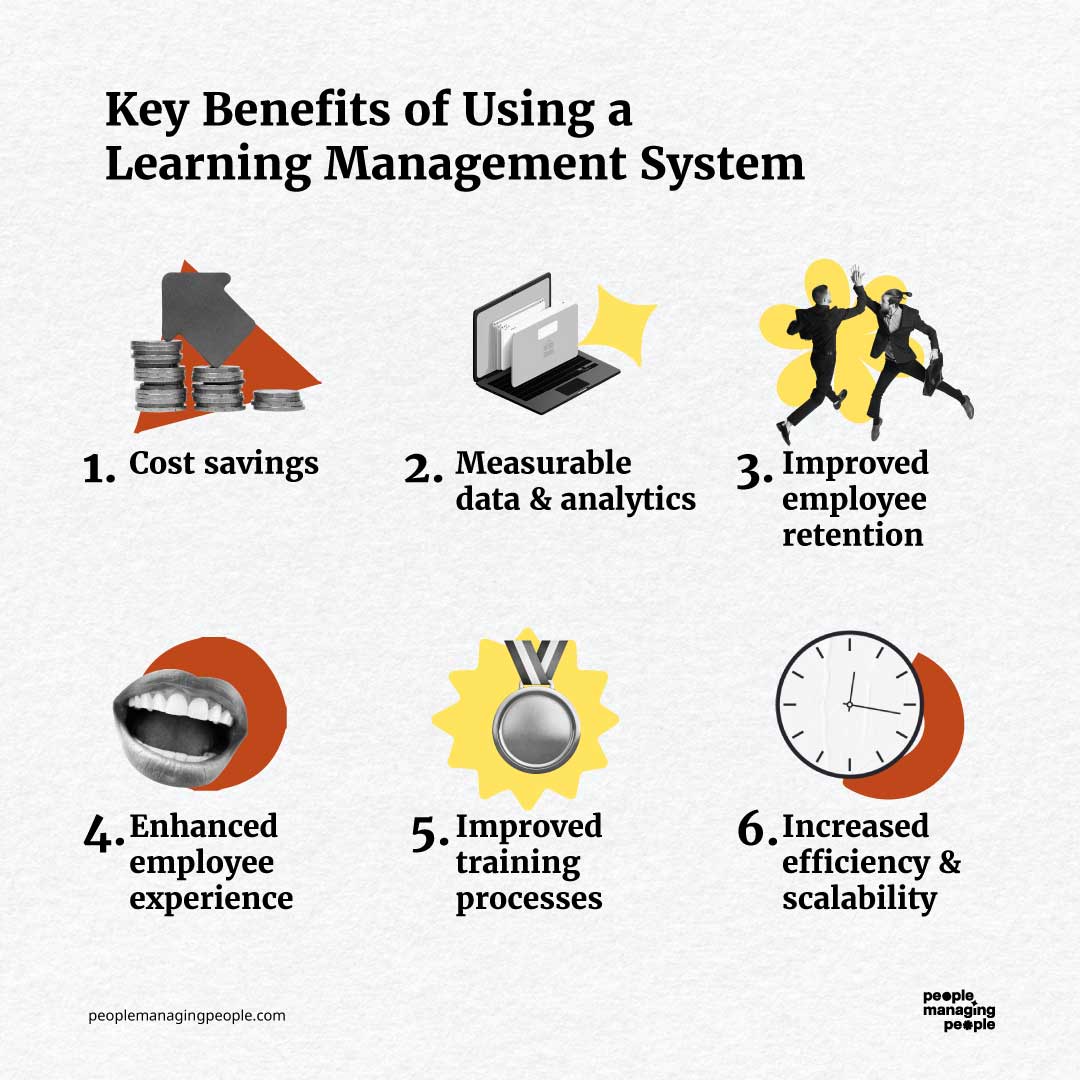Understanding Management Systems Explained: Advantages & Features
Discovering Administration Systems (LMS) have emerged as vital devices in modern-day education and learning, providing an organized framework for both students and educators. These platforms not just enhance the administrative elements of mentor yet additionally enhance the overall learning experience via a range of features designed to help with interaction and progress tracking.
What Is an Understanding Monitoring System?
Defining the core feature of a Discovering Monitoring System (LMS) entails recognizing its function in the instructional landscape. An LMS is a software program application developed to administer, paper, track, report, and deliver instructional programs, training programs, or knowing and development programs. It offers as a centralized system that helps with the administration of instructional material and boosts the finding out experience for both teachers and trainees.
Typically, an LMS supplies devices for program development, web content management, and student involvement. It sustains numerous learning methods, consisting of e-learning, mixed learning, and standard classroom guideline. Educators can publish program materials, create analyses, and screen student progress, while students take advantage of a structured atmosphere that enables for self-paced knowing and simple accessibility to resources.
In addition, LMS platforms commonly consist of features such as conversation forums, multimedia combination, and analytics control panels, making it possible for educators to foster interaction and partnership among students (LMS SG). As education proceeds to advance in the digital age, the relevance of a robust LMS comes to be significantly apparent, offering important assistance for establishments seeking to enhance their instructional offerings and streamline management procedures
Secret Benefits of Using LMS
The fostering of a Discovering Administration System (LMS) offers many benefits that dramatically enhance the educational experience for both learners and establishments. Among the main benefits is the adaptability it offers in finding out. With an LMS, students can access program products, full jobs, and join discussions at their convenience, accommodating numerous finding out schedules and designs.
Additionally, an LMS promotes reliable monitoring and coverage of student progress. Educators can quickly monitor pupil efficiency with analytics and assessments, enabling timely treatments when necessary. This data-driven strategy helps in individualizing learning experiences and making sure that no trainee drops behind.
Cost-effectiveness is an additional key benefit. LMS Singapore. By digitizing program content and decreasing the requirement for physical sources, establishments can reduce functional costs while enhancing availability. LMS systems typically centralize sources, enhancing administrative jobs and releasing up instructors to concentrate more on mentor.
Last but not least, the collaborative attributes of an LMS foster interaction and interaction amongst instructors and pupils, creating an extra interactive knowing setting. In general, the combination of an LMS boosts educational distribution, enhances discovering results, and sustains institutional growth.
Necessary Functions of LMS
Reliable knowing experiences are often underpinned by the essential functions of a Knowing Administration System (LMS) A robust LMS usually includes user-friendly interfaces that help with navigation for both students and teachers. Personalized control panels permit users to track progression and access resources effectively, improving interaction and responsibility.
One more vital attribute is material monitoring capacities, allowing the company and circulation of numerous discovering materials, consisting of quizzes, videos, and files. This published here centralization ensures that customers have easy accessibility to relevant sources. Additionally, an effective LMS supports numerous discovering formats, such as e-learning, mixed discovering, and instructor-led programs, catering to diverse knowing choices.
Assessment and reporting tools are additionally essential, offering insights into learner performance and program effectiveness. These analytics permit teachers to determine areas for improvement and change their methods accordingly. Additionally, interaction functions, such as online forums and messaging, foster cooperation and communication among learners and teachers, improving the academic experience.
How LMS Improves Understanding Experiences
Enhancing knowing experiences through an Understanding Management System (LMS) involves leveraging technology to create even more interactive and customized educational settings. By providing a central system for training course web content, evaluations, and interaction, an LMS empowers both educators and students to take part in an extra vibrant knowing procedure.

Additionally, an LMS cultivates collaboration with incorporated tools such as discussion online forums, team tasks, and real-time feedback systems. These functions not only improve peer communication but likewise motivate energetic participation, which is important for deeper understanding.
Moreover, the data analytics capabilities of an LMS provide instructors with insights right into trainee efficiency and engagement. By assessing this data, instructors can identify patterns and intervene when needed, therefore enhancing general educational results. Ultimately, an LMS changes standard understanding right into an extra engaging, efficient, and efficient experience for all stakeholders included.
Picking the Right LMS for Your Requirements
Selecting the proper Learning Monitoring System (LMS) is a critical decision that can dramatically influence the efficiency of instructional efforts. When choosing an LMS, organizations ought to initially assess their particular demands and purposes. This consists of recognizing the target market, the types of content to be delivered, and the desired understanding results.

An additional crucial aspect is the level of assistance and training given by the LMS vendor - Canvas Singapore. Comprehensive onboarding and ongoing support can enhance individual experience and guarantee successful application. Furthermore, spending plan restrictions should be taken into consideration, as prices can differ considerably depending on the solutions and attributes supplied

Verdict
The necessary features of LMS assist in the see page efficient administration and shipment of instructional content while offering valuable understandings into student efficiency. By systematizing resources and enhancing management jobs, LMS platforms significantly improve the general understanding experience.
Specifying the core function of a Knowing Administration System (LMS) includes understanding its role in the instructional landscape.The adoption of a Discovering Administration System (LMS) provides various benefits that significantly boost the academic experience for both organizations and students.Effective learning experiences are frequently underpinned by the essential functions of an Understanding Administration System (LMS) Additionally, an effective LMS supports numerous learning formats, such as e-learning, blended learning, and instructor-led courses, providing to varied understanding preferences.
Choosing the suitable Learning Administration System (LMS) is an essential choice that can considerably affect the effectiveness of educational campaigns.